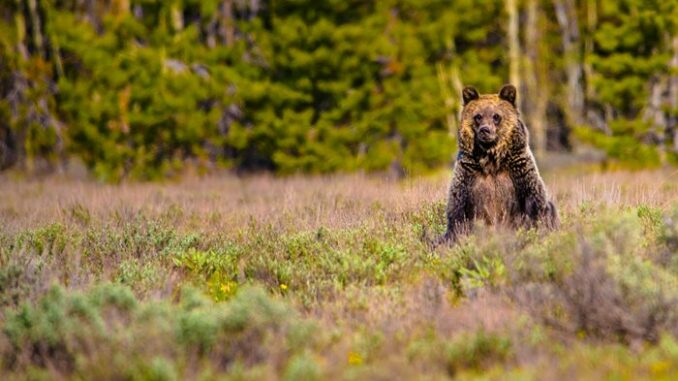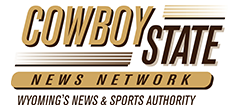
Months of planning have finally passed and hunting season is around the corner. But before you hit the trail this fall, the Wyoming Game and Fish Department wants to remind people who recreate in bear country to take safety precautions and be on the lookout for bears — and signs of bears.
“Hunting is a great way to experience the vast and wild landscapes Wyoming has to offer. We want all hunters to enjoy the outdoors and be bear-wise to minimize the chances of bear-human conflicts,” Game and Fish Large Carnivore Conflict Coordinator Brian DeBolt said. “We encourage all to have a heightened sense of awareness and be mentally prepared for an encounter with a bear.”
Hunters can follow these tips to help minimize the chance of a bear conflict:
- Always try to hunt and call game with a partner and stay within sight of each other.
- Remain alert and watchful for bear activity. Avoid tunnel vision while pursuing game.
- Learn to recognize bear sign such as scat, tracks and diggings.
- Retrieve game animals as quickly as possible and watch for approaching bears when field dressing and quartering. The longer game is in the field, at camp or in the back of a vehicle the more likely it is to be discovered by a bear.
- Quarter and hang the carcass in a tree at least 10 to 15 feet from the ground and four feet from the tree trunk. Separate the carcass from the entrails and place the carcass in an area that can be safely viewed from a distance if game must be left on the ground overnight.
- Make noise when retrieving game. Use binoculars to search the area for bears and to determine if the game has been distrubed by bears prior to walking up to the carcass.
- Be aware that bears often set up a daybed near food sources.
- If a bear has claimed your carcass, leave the scene and report the incident to Game and Fish. Do not attempt to scare the bear away.
- Bears actively defend their food, their young and their personal space. During the fall all bears are on the lookout for food before going into hibernation for the winter.
Keeping a clean camp is a good practice everywhere and anytime, but especially in bear country. Secure all garbage, barbecue grills, food items, flavored beverages, pet food and other attractants in a vehicle or hard-sided camper before going to sleep at night and anytime you leave camp. In the backcountry store food and coolers suspended from a tree at least 10 to 15 feet high and four feet away from the tree trunk. Sleeping areas should be at least 100 yards away from food storage and eating/cooking areas.
To reduce the chance of having a conflict with a bear, follow these precautions:
- Carry a bear deterrent and know how to use it. Many aggressive bears have been deterred through the use of bear spray. People should always carry bear spray where it is easily accessible while in bear country.
- Make sure bear spray is EPA approved. Those that are not may prove faulty.
- Know where seasonal food sources — like berries — for bears are present and either avoid those areas or be cautious when entering them.
- If you see ravens or other scavengers in the area that is a good indication a food source is nearby and a bear may be in the area. Avoid those areas if possible.
“We hope all people recreating in bear country will take the time to learn the proper precautions before venturing out and enjoying the landscape safely,” Debolt said.
Game and Fish has a lot of resources for those who recreate in bear country, including its Bear Wise website with more safety tips, information and videos. Hunters can call a Game and Fish regional office to learn more about bears in their hunt areas and ask questions about bear safety. Any human-bear conflict should be reported to Game and Fish as soon as possible by calling your closest regional office or the Game and Fish Stop Poaching Hotline at 1-877-WGFD-TIP (943-3857).
